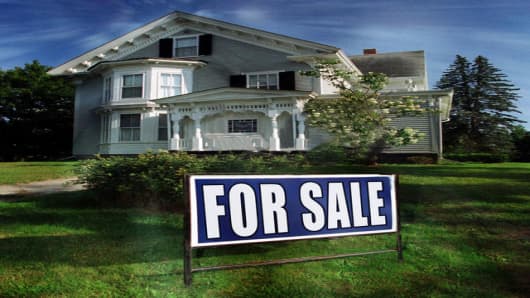"Certainly, the market has turned .. far worse than I anticipated," Yun said, noting that NAR downwardly revised its homes sales volume several times this year.
Nationally, home prices in 2007 will suffer the first annual decline since the Great Depression, Yun said.
Economists polled by Reuters ahead of the report were expecting pending home sales to decline by 1.0 percent.
The report follows more bad news last week in the housing industry. Although President Bush unveiled his mortgage bailout planThursday, there were numerous signs that the housing slump was going to get worse before it gets better.
Here's a rundown of the latest batch of bad news:
--Home foreclosures rose to record highs in the third quarter, the Mortgage Bankers Association said.
Problems with payments on all loan types drove up the pace of homes entering the foreclosure process, the trade group said in its delinquency and foreclosure survey.
Late payments on mortgages jumped to the highest level since 1986, according to the survey that the group started in 1972.
--Housing markets from Punta Gorda, Florida, to Stockton, California, will crash and suffer price drops of more than 30 percent before the housing crisis is over, a report from Moody's Economy.com said.
On a national level, the housing market recession will continue through early 2009, said the report, co-authored by Mark Zandi, chief economist, and Celia Chen, director of housing economics.
The report paints a worsening picture of the hard-hit housing sector, which is in the midst of its worst downturn since World War II.
-- A senior manager at the world's biggest bond fund criticized a federal mortgage rescue plan as short-sighted and saidU.S. home prices may not hit bottom until 2010.
U.S. home prices may fall as much as 30 percent from the market's peak and likely won't trough until 2009 to 2010, according to Mark Kiesel, a portfolio manager at Pacific Investment Management.
"The question is, do we do it over a period of two to three years, or do we do it in 10?" Kiesel said in an interview. "Japan chose 10, and that didn't work so well."


